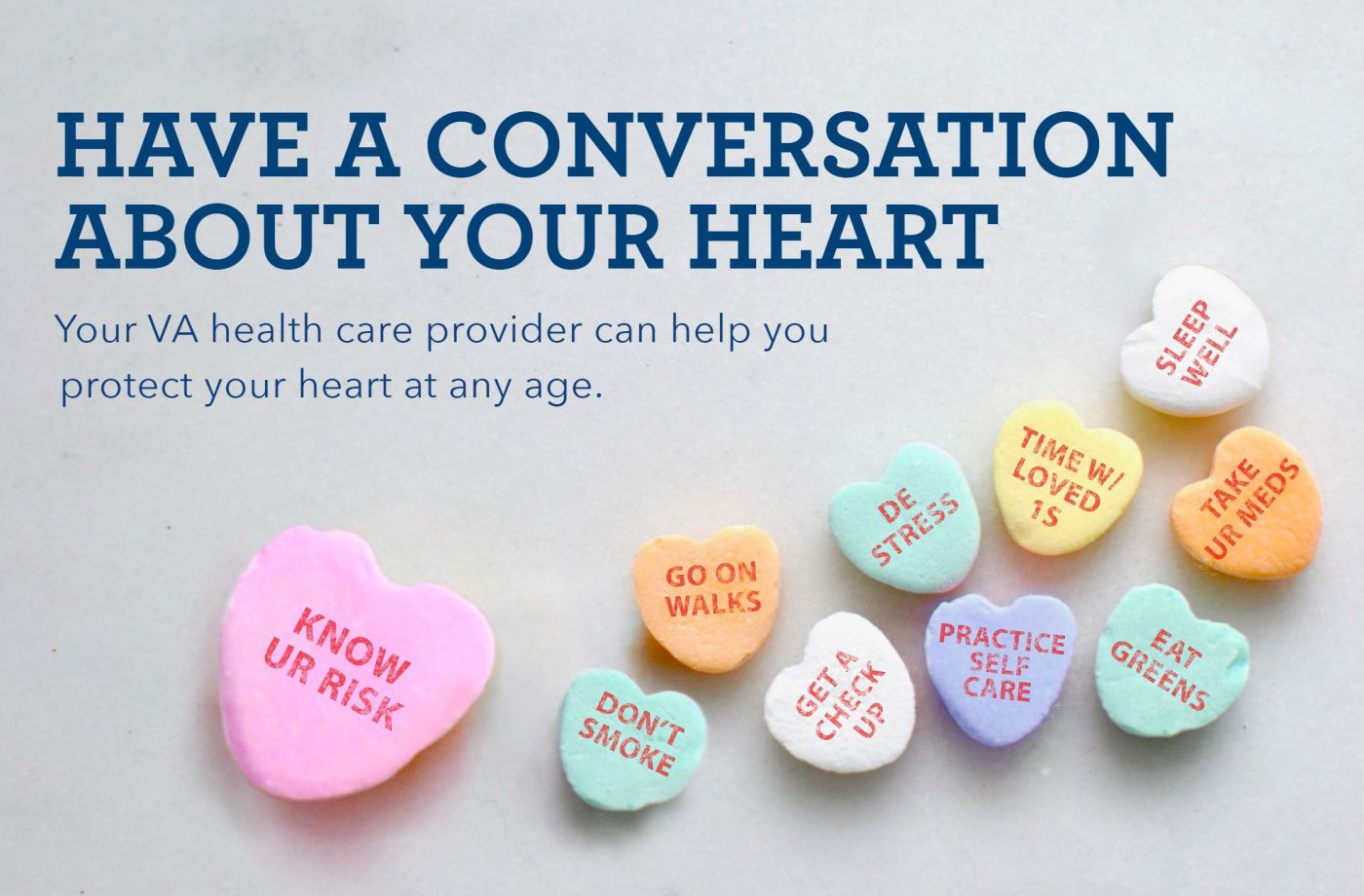It’s time for a heart-to-heart—about your heart. Heart disease is still the leading cause of death and disability in the U.S.
Risk factors for heart disease include high blood pressure, high cholesterol, diabetes, smoking, lack of exercise, being overweight and family history.
Mental health conditions, such as depression, post-traumatic stress disorder (PTSD) and experiences of trauma are often the result of military service and can also affect your heart health.
Younger women Veterans could be at risk
These risks can lead to heart disease – even at a younger age in women Veterans. Black or non-Hispanic African American women may experience higher rates of risk factors and heart disease than white and Hispanic women Veterans.
In addition, you may fall into some unhealthy habits after you leave the service, such as not exercising as much as you would like. That can raise your risk for heart disease. VA wants to help you change that. Our health care providers are here to help you live a heart-healthy life and give you the care you deserve.
Lifestyle is key to a healthy heart
The best way to reduce your risk of heart disease is to start now, whether you are 25 or 75, to change your lifestyle. Focusing on just a couple of these actions is a good start.
- Don’t smoke
- Go for a daily walk or another exercise
- Eat a healthy diet; check out VA’s Healthy Teaching Kitchen
- Get good sleep
- Reduce stress in your life by trying Whole Health approaches like yoga, tai chi, mindfulness or meditation
- Spend more time with people who support you
- Pay attention to your body. You learned to “power through” your days in the military, so now you may overlook subtle signs that you need to take a break or de-stress
- Have regular visits with your VA health care provider, who can work with you to assess your risks and develop a realistic plan for heart health
If you don’t have a VA health care provider, or if you have questions about VA health care services for women Veterans, call, text or chat online with our Women Veterans Call Center at 855-829-6636.
You have been busy taking care of everyone else – your partner, your kids, your family and your friends. Now you need to take care of yourself.
Have a conversation about your heart with your VA health care provider.
Topics in this story
More Stories
The 2024 National Veteran Suicide Prevention Annual Report provides the foundation for VA’s suicide prevention programs and initiatives.
Theranostics is a specialized field of nuclear medicine that uses a two-pronged approach to diagnose and treat cancer.
Air Force Veteran Shireta Jones overcomes obstacles with support from VA and adaptive devices to continue her passion for pickleball.








I have had a heart issue, previously treated by civilian health care and now want to get a VA cardiologist and medications. Request assistance. Live in the Greater Charlotte SC area. I am a registered VA patient.
Thank you.
JBC